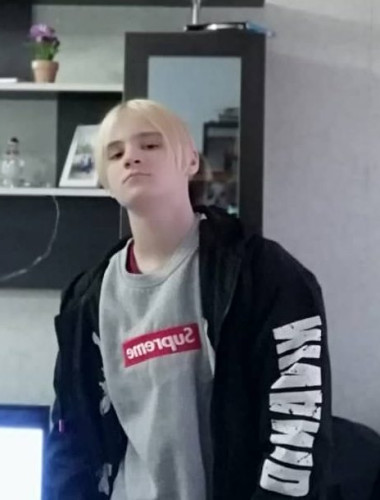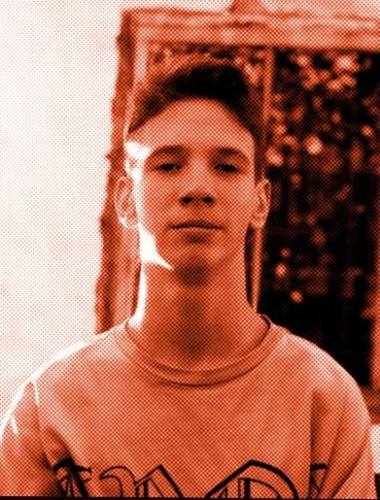Valery Zaitsev and Nikita Turlaev are political prisoners
Two teenagers from Khabarovsk Krai have been convicted on terrorism charges and sentenced to terms of up to 11 years in strict regime penal colonies
The ‘Political Prisoners. Memorial’ human rights project, in accordance with international standards, considers Valery Zaitsev and Nikita Turlaev political prisoners. Zaitsev and Turlaev were both convicted of participation in a terrorist organisation. Zaitsev was, in addition, convicted of undergoing training for the purposes of terrorist activity, while Turlaev was convicted of making calls to engage in terrorism and of its propaganda and justification online. The charges appear to have been related to the teenagers’ interest in the Azov Brigade, a Ukrainian military unit. The prosecution and conviction of Valery Zaitsev and Nikita Turlaev violated their right to a fair trial. We demand their immediate release and that all criminal charges against them be dropped.
What were the charges against Valery Zaitsev and Nikita Turlaev?
According to the investigative authorities, Nikita Turlaev, a student at Komsomolsk College of Technology and Service, and Valery Zaitsev, a high school student, sympathised with Ukraine’s Azov Brigade. Turlaev allegedly ‘administered groups and chats on VK and Telegram promoting the battalion’s ideology and looked for like-minded people,’ while Zaitsev ‘searched for instructions on how to work with explosives and make Molotov cocktails’ and tested incendiary mixtures in deserted areas.
The two teenagers were arrested on 12 October 2023: 14-year-old Zaitsev was taken directly from a tuberculosis clinic where he was being treated, while 18-year-old Turlaev was detained in his student dormitory. Both were remanded in custody.
The charges were based on the testimony of a secret witness who recorded a short video showing the teenagers throwing ‘Molotov cocktails’ at a concrete wall of an abandoned building. Other evidence included posts on the VK and Telegram social media sites by Zaitsev and Turlaev, testimony from their classmates, and correspondence with the secret witness.
Zaitsev and Turlaev were convicted on a charge of participation in the activities of a terrorist organisation (Article 205.5, Part 2, of the Russian Criminal Code). Turlaev was also convicted on a charge of making public calls to engage in terrorism (Article 205.2, Part 2), while Zaitsev was also convicted of undergoing training for terrorist purposes (Article 205.3). Zaitsev partially admitted guilt; how Turlaev pleaded in court is not known.
On 16 August 2024, a military court sentenced Zaitsev to four years and six months in a penal colony for juveniles. On 13 November 2024, Turlaev was sentenced to 11 years’ imprisonment, of which he must serve the first three years in a cell-type prison and the remainder in a strict regime penal colony. The sentences were upheld on appeal on 10 March 2025.
Why do we consider Valery Zaitsev and Nikita Turlaev political prisoners?
It is not known exactly to which terrorist organisation Zaitsev and Turlaev are alleged to have belonged. Most likely, the accusation refers to the Azov Brigade. Originally founded as the Azov Battalion in May 2014, since November 2014, the Azov Regiment has been a unit of Ukraine’s National Guard (since February 2023, it has been designated as the Azov Brigade). The Russian Supreme Court designated this unit a terrorist organisation, but this ruling contradicts international law and has been used to criminalise the actions of Ukrainian military personnel.
Support for or discussion of the Azov Brigade online does not constitute terrorist activity. Zaitsev and Turlaev, living far from Ukraine in the Russian Far East, were physically unable to participate in Azov’s activities.
Searching online for instructions, experimenting with flammable mixtures, or throwing bottles at walls cannot reasonably be considered training in terrorist activities. There is no evidence that Zaitsev planned to commit any crimes.
The case is based on the testimony of a secret witness, and the teenagers may have been victims of a provocation by the security services.
It is shocking that these young people have been deprived of their liberty. Even if their actions had constituted criminal offences, the authorities could have imposed other forms of rehabilitation. Valery Zaitsev is an orphan raised by his grandmother, who has significant problems with his health; there are serious concerns as to whether he will receive the necessary medical care in custody.
A detailed description of Zaitsev’s and Turlaev’s case and of our position is available on our website.
Recognition of an individual as a political prisoner does not imply the ‘Political Prisoners. Memorial’ human rights project agrees with, or approves, their views, statements, or actions.
How can you help?
You can write to Valery Zaitsev and Nikita Turlaev at the following addresses:
RU:
679000, Еврейская АО, г. Биробиджан, Аремовский пер., д. 10, ФКУ Биробиджанская ВК УФСИН России по Еврейской автономной области, Зайцеву Валерию Андреевичу, 2008 г. р.
681000, Хабаровский край, г. Комсомольск-на-Амуре, ул. Пионерская, д. 23, корп. 2, ФКУ СИЗО-2 УФСИН России по Хабаровскому краю, Турлаеву Никите Юрьевичу, 2005 г. р.
EN:
Valery Andreevich Zaitsev (born 2008), Birobidzhan Juvenile Penal Colony, Federal Penitentiary Service of Russia for the Jewish Autonomous Oblast, 10 Aremovsky Lane, Birobidzhan, Jewish Autonomous Oblast, 679000, Russia.
Nikita Yuryevich Turlaev (born 2005), Remand Prison No. 2, Federal Penitentiary Service of Russia for Khabarovsk Krai, 23 [Building 2] Pionerskaya Street, Komsomolsk-on-Amur, Khabarovsk Krai, 681000, Russia
You can also send emails using the ZT service (for payment with Russian bank cards), OVD-Info and Memorial-France (free of charge).
Please note that letters in languages other than Russian are highly unlikely to reach the intended recipient.
You can donate to help all political prisoners in Russia.

